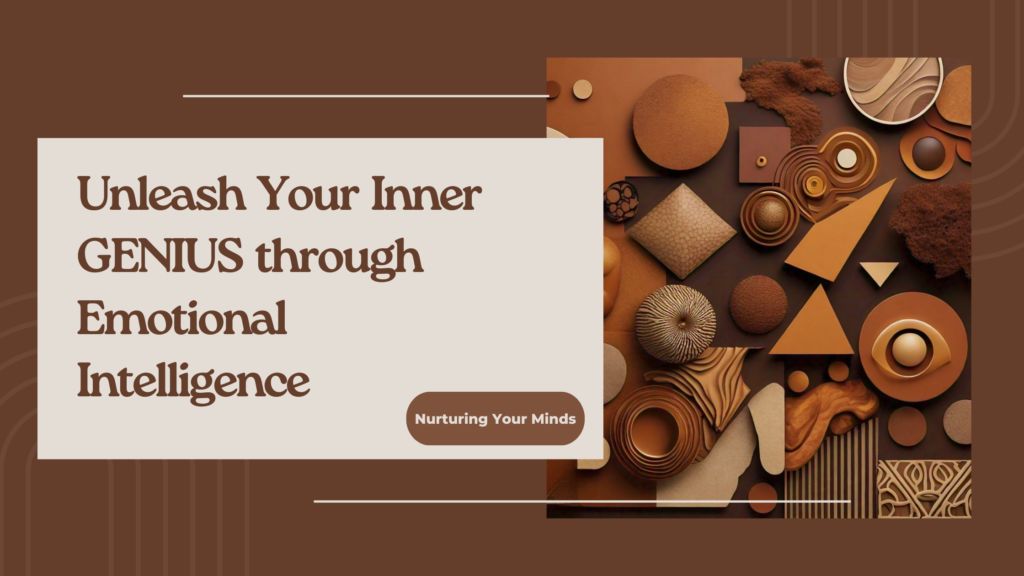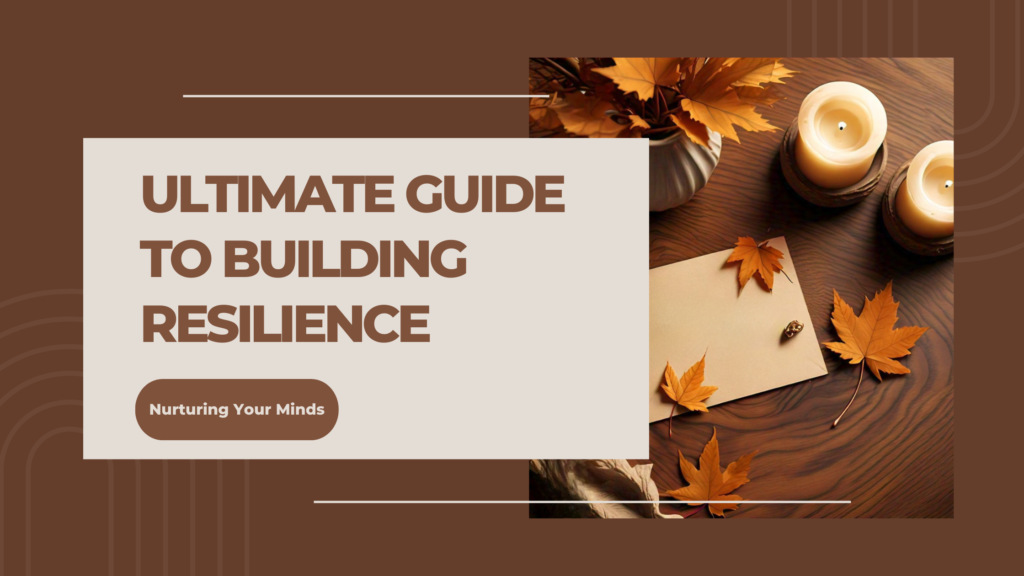Imagine waking up every morning feeling in complete harmony with yourself and the world around you. Picture navigating life’s challenges with a sense of calm and control, transforming obstacles into opportunities for growth. This isn’t a fantasy; it’s the reality for those who have harnessed the power of emotional intelligence (EI). In a world where IQ often takes the spotlight, it’s time to shine a light on the unsung hero: your EQ. Let’s dive deep into the fascinating world of emotional intelligence and discover how you can unleash your inner genius.
The Science Behind Emotional Intelligence
Emotional intelligence, coined by psychologists Peter Salovey and John D. Mayer, and popularized by Daniel Goleman, refers to the ability to recognize, understand, and manage our own emotions, as well as the emotions of others. It’s not just about being in touch with your feelings; it’s about using this awareness to navigate social complexities and make informed decisions.
EI is divided into four core components:
- Self-Awareness: Understanding your own emotions.
- Self-Management: Regulating your emotions in healthy ways.
- Social Awareness: Recognizing the emotions of others.
- Relationship Management: Building healthy relationships through emotional understanding.
These components form the backbone of emotional intelligence, providing a framework for developing skills that enhance both personal and professional life.
Not incorporating these EI pillars into your life can lead you towards stressful life ahead. And if you’re already experiencing any kind of stress, HERE is my detailed and interactive De-Stress Nurturing Program, in order to manage and regulate your stress in a more efficient and effective manner.
Self-Awareness: The Foundation of Emotional Intelligence
Self-awareness is the cornerstone of EI. It involves recognizing your emotions as they occur and understanding the impact they have on your thoughts and actions.
Strategies to Enhance Self-Awareness:
- Mindfulness Meditation: Practicing mindfulness helps you become more aware of your emotional states and the triggers behind them. By staying present, you can observe your feelings without judgment and gain deeper insights into your emotional patterns.
- Journaling: Keeping a Daily Journal allows you to reflect on your emotions and the events that influenced them. Over time, this practice can reveal recurring themes and provide clarity on your emotional triggers.
- Feedback from Others: Seeking feedback from trusted friends or colleagues can offer valuable perspectives on how your emotions and behaviors are perceived by others.
Case Study: Consider Sarah, a project manager who struggled with frequent frustration at work. By practicing mindfulness and journaling, she identified that her frustration often stemmed from a lack of control over project timelines. Understanding this, she started communicating her concerns more effectively with her team, leading to better collaboration and reduced stress.
Self-Management: Mastering Your Emotions
Self-management builds on self-awareness, focusing on regulating your emotions to respond appropriately to different situations. It’s about staying in control even when emotions run high.
Techniques for Better Self-Management:
- Breathing Exercises: Simple breathing techniques can help calm your nervous system and reduce the intensity of negative emotions. Practicing deep, slow breaths can quickly alleviate feelings of anger or anxiety.
- Positive Visualization: Visualizing positive outcomes can shift your mindset and reduce stress. By imagining a successful resolution to a challenging situation, you can approach it with a more positive and proactive attitude.
- Cognitive Reframing: This involves changing your perspective on a situation to alter its emotional impact. Instead of viewing a mistake as a failure, see it as a learning opportunity.
Example: John, a sales executive, often felt overwhelmed during high-pressure sales pitches. By practicing breathing exercises before meetings and visualizing successful outcomes, he managed to stay calm and focused, leading to improved performance and higher sales.
Social Awareness: Tuning into Others
Social awareness involves recognizing and understanding the emotions of others. It’s about empathy—putting yourself in someone else’s shoes and seeing the world from their perspective.
Ways to Develop Social Awareness:
- Active Listening: Pay full attention to what others are saying without interrupting. Show empathy by acknowledging their feelings and asking open-ended questions to gain deeper insights.
- Nonverbal Cues: Learn to read body language, facial expressions, and tone of voice. These cues can provide valuable information about how someone is feeling, even if they don’t express it verbally.
- Cultural Sensitivity: Understanding and respecting cultural differences can enhance your ability to connect with people from diverse backgrounds.
Scenario: Emily, a team leader, noticed a drop in her team’s morale. By actively listening to her team members and observing their nonverbal cues, she discovered that a recent policy change was causing stress. Emily addressed their concerns empathetically and worked with them to find a solution, significantly boosting morale and productivity.
Relationship Management: Building Strong Connections
Relationship management is the ability to build and maintain healthy relationships through effective communication, conflict resolution, and collaboration.
Strategies for Effective Relationship Management:
- Effective Communication: Practice clear and open communication. Use “I” statements to express your feelings and needs without blaming others. For example, say “I feel concerned when…” instead of “You always…”
- Conflict Resolution: Approach conflicts with a solution-oriented mindset. Focus on finding common ground and mutually beneficial outcomes rather than winning an argument.
- Building Trust: Consistency, reliability, and integrity are key to building trust. Show empathy and support, and be willing to apologize and make amends when necessary.
Example: Tom, a new manager, faced resistance from his team. By focusing on building trust through open communication and showing genuine interest in their concerns, he gradually gained their respect and cooperation, transforming the team dynamic.
Emotional Intelligence Workbook can also be used in order to practice it in a more organized and stress-free manner.
The Impact of Emotional Intelligence on Various Aspects of Life
Professional Success:
High EI contributes to better leadership, teamwork, and decision-making. Leaders with high EI can inspire and motivate their teams, handle stress effectively, and create a positive work environment. Employees with high EI are better at managing workplace relationships, leading to higher job satisfaction and performance.
Personal Relationships:
EI enhances interpersonal relationships by fostering empathy, effective communication, and conflict resolution. Individuals with high EI can navigate social complexities, build strong connections, and maintain healthy relationships.
Mental Health:
Developing EI can significantly improve mental health by providing tools to manage stress, anxiety, and depression. Self-awareness and self-management help individuals understand and regulate their emotions, leading to greater emotional stability and resilience.
Overall Well-Being:
High EI contributes to overall well-being by promoting a balanced and fulfilling life. It helps individuals make informed decisions, set realistic goals, and maintain a positive outlook, even in the face of challenges.
In order to achieve positive outlook and an optimistic mindset, here is my FREE step by step guide on Optimism.

Practical Steps to Enhance Emotional Intelligence
- Practice Self-Reflection: Set aside time each day for self-reflection. Review your emotional responses to different situations and consider how you could have handled them better. Reflect on your strengths and areas for improvement.
- Develop Emotional Vocabulary: Expand your emotional vocabulary to better articulate your feelings. Use specific words to describe your emotions, such as “frustrated,” “anxious,” “elated,” or “content.” This helps in understanding and communicating your emotional states more effectively.
- Seek Feedback: Ask for feedback from trusted friends, family, or colleagues about how you manage your emotions and interact with others. Be open to constructive criticism and use it to enhance your EI skills.
- Practice Empathy: Make a conscious effort to understand others’ perspectives. Listen actively, validate their feelings, and respond with empathy. Practice putting yourself in others’ shoes to gain a deeper understanding of their emotions.
- Engage in Emotional Regulation Techniques: Learn and practice techniques to manage your emotions effectively. This could include mindfulness meditation, deep breathing exercises, or engaging in activities that bring you joy and relaxation.
- Strengthen Interpersonal Skills: Work on improving your communication and conflict resolution skills. Practice active listening, assertiveness, and collaborative problem-solving. Building strong interpersonal skills enhances your ability to manage relationships effectively.
Conclusion: Embrace the Power of Emotional Intelligence
Emotional intelligence is a transformative skill that can significantly enhance your personal and professional life. By developing self-awareness, self-management, social awareness, and relationship management, you can navigate life’s challenges with grace and resilience. Embrace the journey of enhancing your EI and unleash your inner genius. Remember, it’s not just about being smart, it’s about being emotionally intelligent.
In the words of Daniel Goleman, “In a very real sense, we have two minds, one that thinks and one that feels.” By balancing these two minds, you can achieve a richer, more fulfilling life. So, start today.
Take the first step towards emotional intelligence development and watch as your life transforms in ways you never thought was possible!



